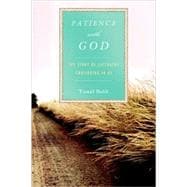
TOMÁŠ HALÍK worked as a psychotherapist during the Communist regime in Czechoslovakia while at the same time was secretly ordained as a Catholic priest and active in the underground church. Since the fall of the regime, he has served as General Secretary to the Czech Conference of Bishops and was an advisor to Václav Havel. He has lectured at many universities throughout the world and is currently a professor of philosophy and sociology at Charles University. His books, which are bestsellers in his own country, have been translated into many languages and have received several literary prizes.
The New copy of this book will include any supplemental materials advertised. Please check the title of the book to determine if it should include any access cards, study guides, lab manuals, CDs, etc.
The Used, Rental and eBook copies of this book are not guaranteed to include any supplemental materials. Typically, only the book itself is included. This is true even if the title states it includes any access cards, study guides, lab manuals, CDs, etc.
Excerpted from Patience with God: The Story of Zacchaeus Continuing in Us by Tomas Halik
All rights reserved by the original copyright owners. Excerpts are provided for display purposes only and may not be reproduced, reprinted or distributed without the written permission of the publisher.